In a Ukrainian soldier’s mess tin: balancing abundance and malnutrition on the Ukrainian frontlines
"An army marches on its stomach," goes the famous saying. So volunteers step in to deliver ready meals to soldiers where procurement is lacking The post In a Ukrainian soldier’s mess tin: balancing abundance and malnutrition on the Ukrainian frontlines appeared first on Euromaidan Press.
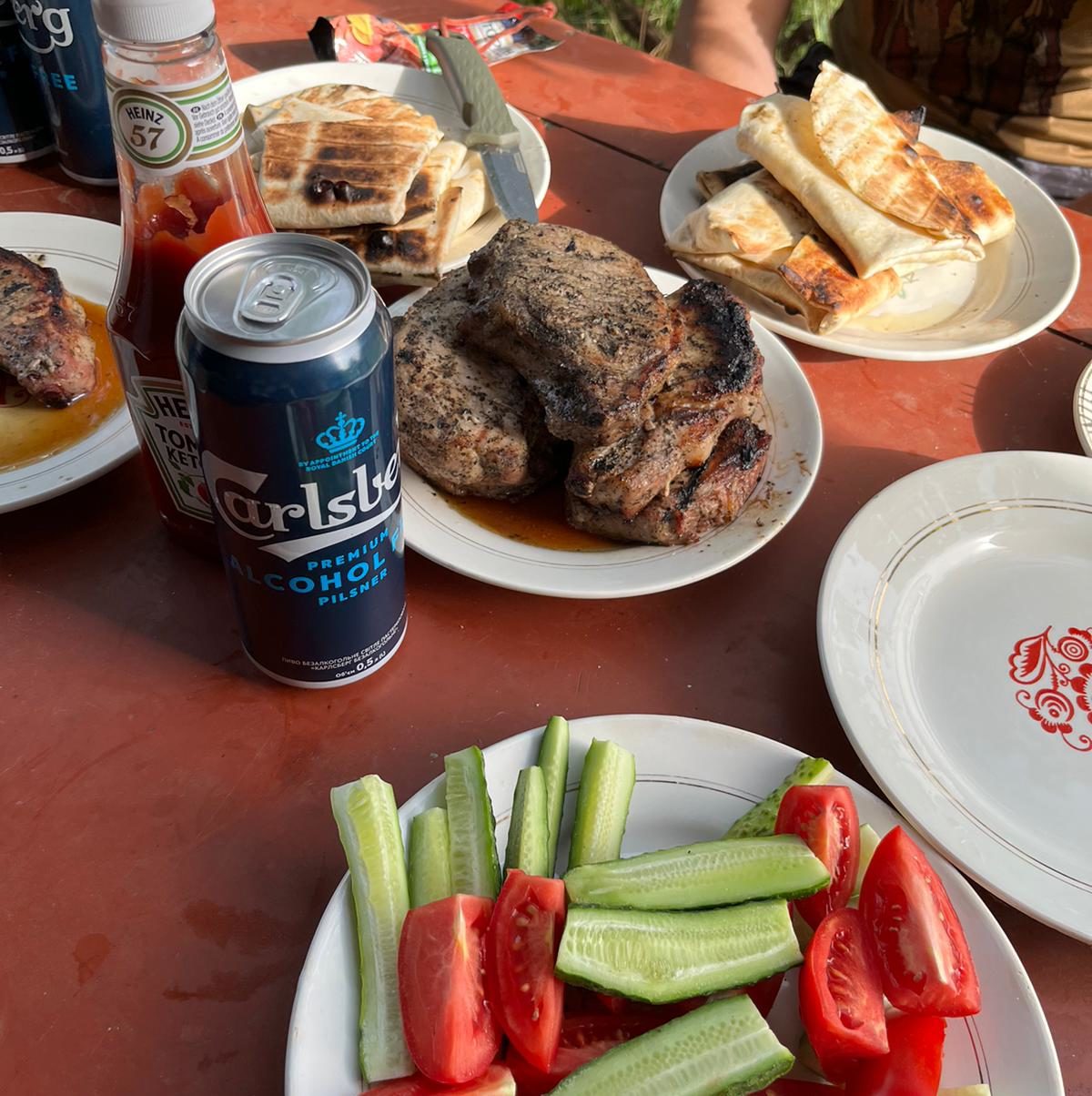
Kharkiv Oblast – In a wooded area, after a fleeting rain, a group of Ukrainian soldiers are gathered around a makeshift table.
The soldiers are part of a unit nicknamed Bob Marley’s squad, a volunteer group that has been fighting since 2014.
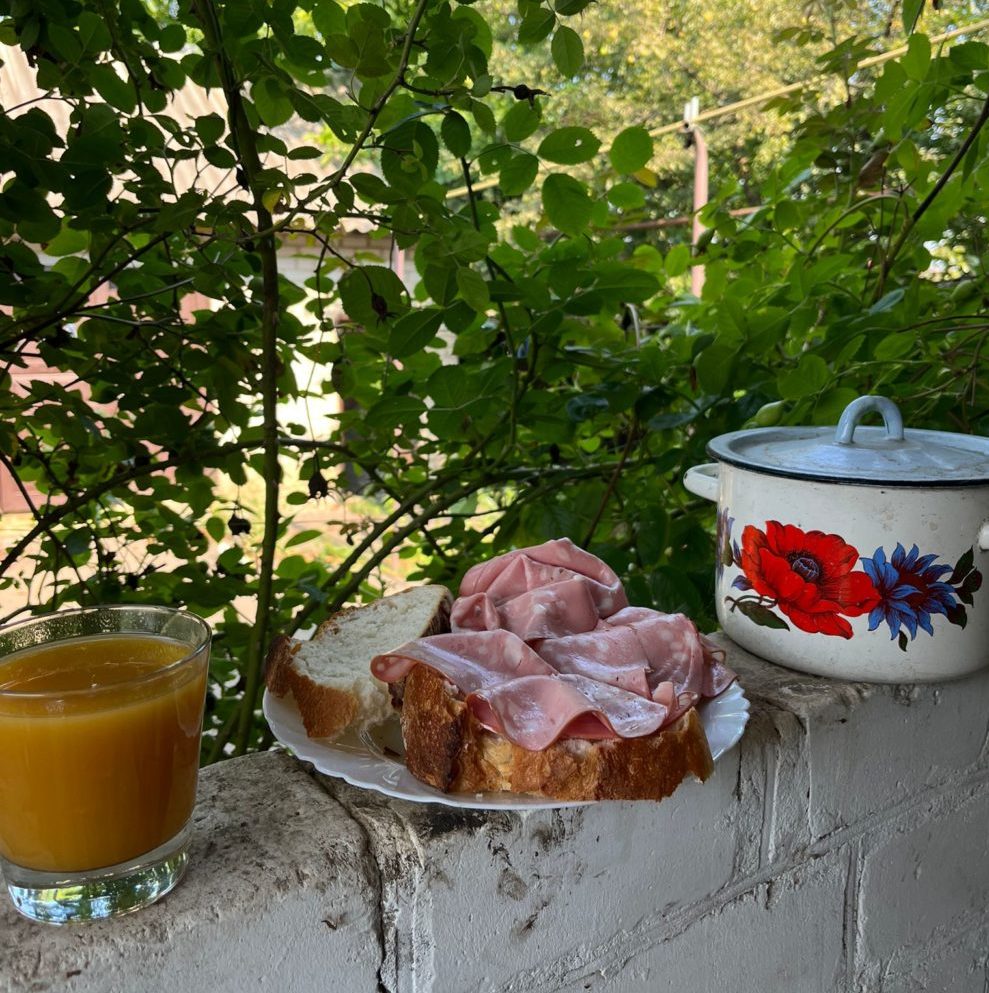

They’ve spent the last several days conducting missions in the Kharkiv Oblast in northeastern Ukraine. Upon their return, they spent at least two hours cooking.
On a dusty mahogany-red table, they laid out chicken, cucumbers, steaming-hot borscht, ketchup, and beer.
Dima Dubas, one of the soldiers, explains that not everything is supplied by the army, and they had to do some extra shopping.
“The army provides the basics – butter, bread, sausages, and fruits. It’s enough for caloric intake, but in terms of variety, it’s not incredible, so we have to buy extras at the supermarket,” he says.
Dima does point out that moments such as this relative feast are rare, and their meals on the frontline are more basic.
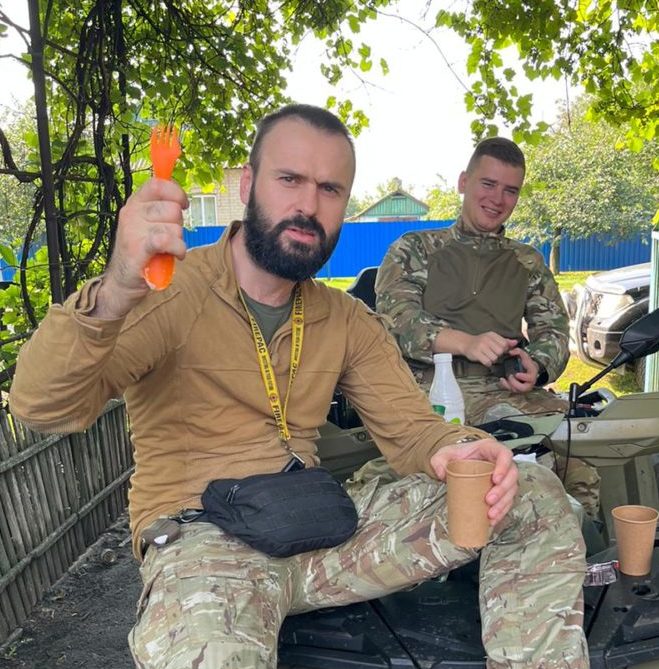
“On missions, we carry rations and usually cook ourselves on gas stoves. In the rear, we have more time to eat well,” he says.
There is no specific standard ration for the Ukrainian army, says the 33-year-old. Ukrainian combat rations may contain some combination of cakes, jams, kasha (Ukrainian porridge), tuna, soup, and chicken. They also have German rations, which they consider superior. They include chocolate mousse, crackers, cookies, bolognese paste, cereal bars and chocolate.
With what the army provides, combined with support from volunteers and what they buy themselves, they manage to eat well.
“It all depends on where you are and who your commander is,” explains Serhii Sergeiev, a 26-year-old soldier in the 124th regiment.
Serhii says he is lucky. “We have a good commander,” he says. “We eat enough; it’s not a Michelin hotel, but I’d give my unit a 7/10 rating.”
For soldiers, there are few things that boost morale and camaraderie more than a hot meal after days in the field. This is a fact that has been known for hundreds of years. “An army marches on its stomach,” goes the famous saying, variously attributed to the Prussian King Frederick the Great or Napoleon Bonaparte.
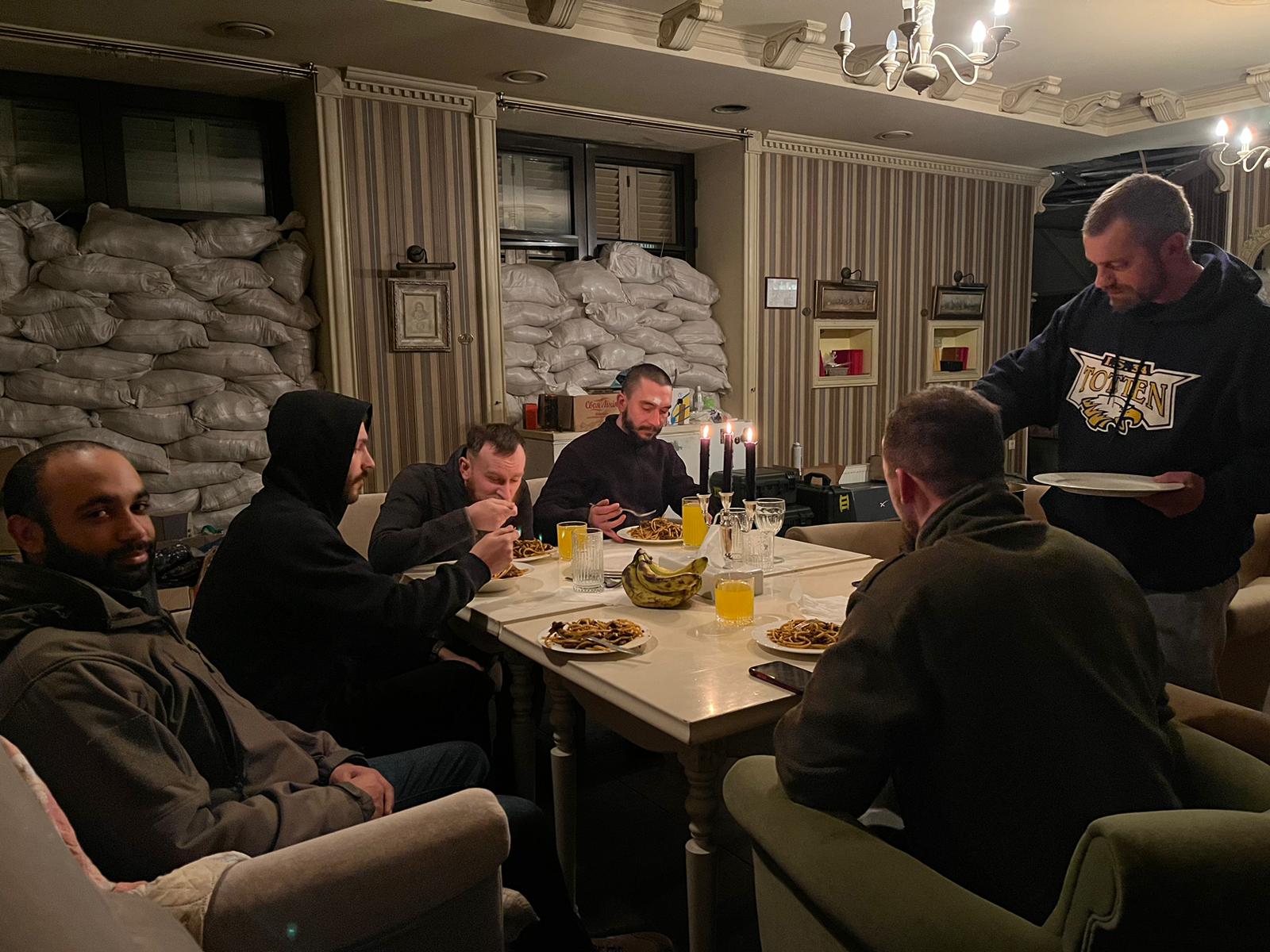
Malnutrition in the army
Corruption and malnutrition, however, plague some units. Zhenia Mykhailenko, a Ukrainian chef, reveals that the situation is far from ideal.
As well as being the chef at one of Kyiv’s best ramen shops, he is also the founder of the Magic Food Army project, an NGO dedicated to delivering prepared meals to Ukrainian soldiers.
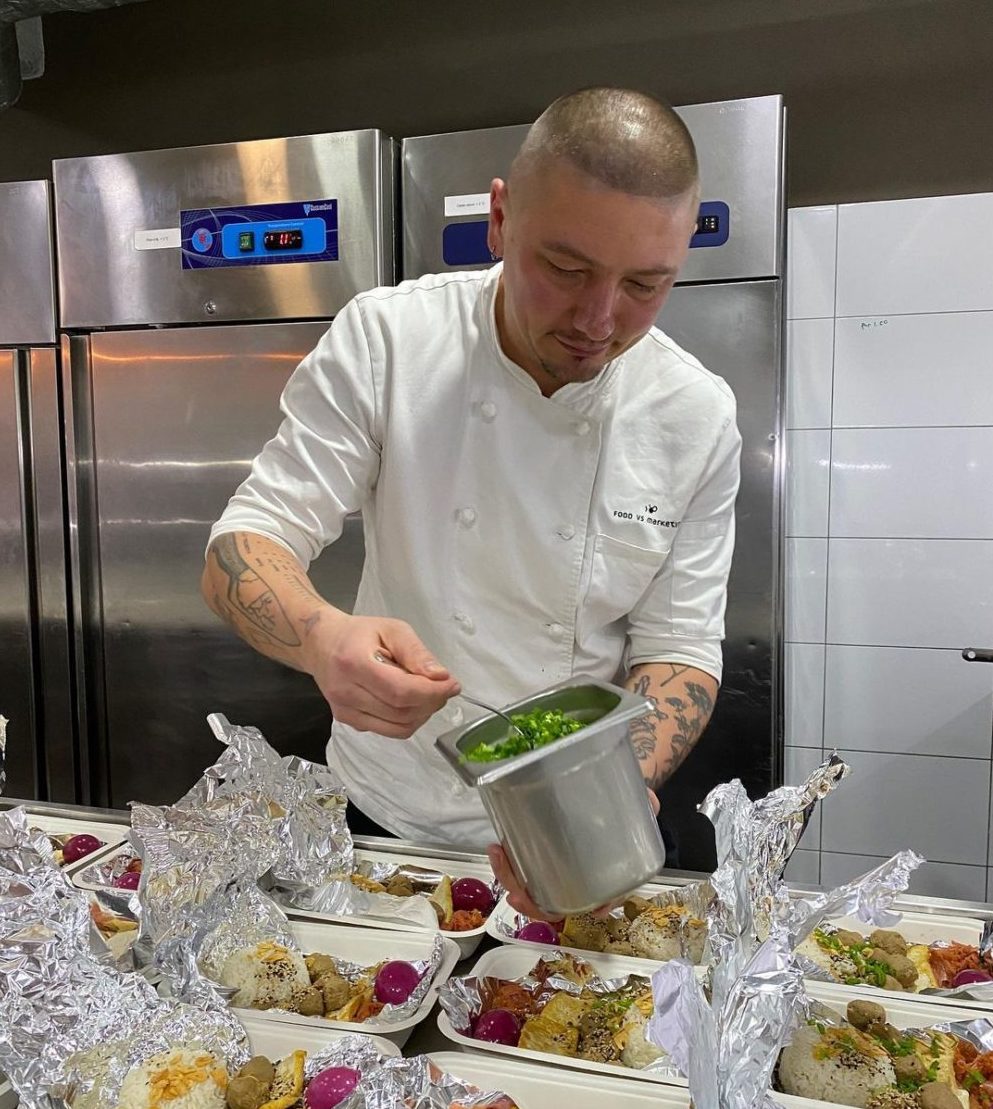
“The Ukrainian armed forces mobilized more than 700,000 soldiers, so of course, it can’t be perfect,” explains Zhenia. However, he suggests that food deprivation among Ukrainian soldiers could become a key issue in the war.
A news article earlier this year published by the ZN.UA news website and based on official documents showed the Ukrainian Ministry of Defense had signed contracts that are “two to three times higher” than market prices for supplying food to Ukrainian soldiers.
This high-profile scandal led to a new law on defense procurement transparency, the dismissal of the head of the Ministry of Defense’s state procurement department, and the resignation of the deputy minister of defense.
Despite the change, Zhenia insists that the situation has not improved.
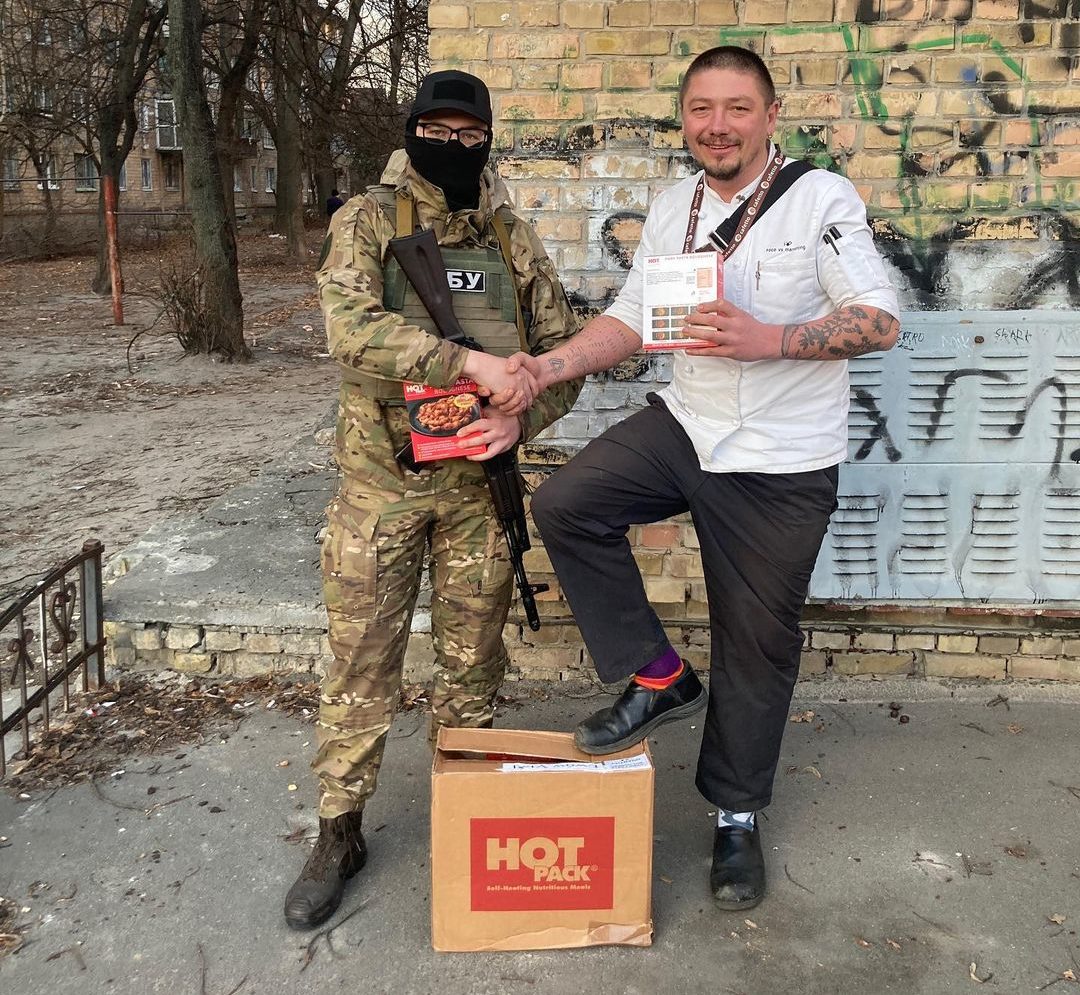
“On the contrary, the process is even more opaque,” he says. “Before the corruption scandal, we could see the amount billed for each food delivery, but they’ve removed it since.”
Although Zhenia doesn’t consider the situation critical, he confirms that soldiers in different units are either well-fed or poorly fed.
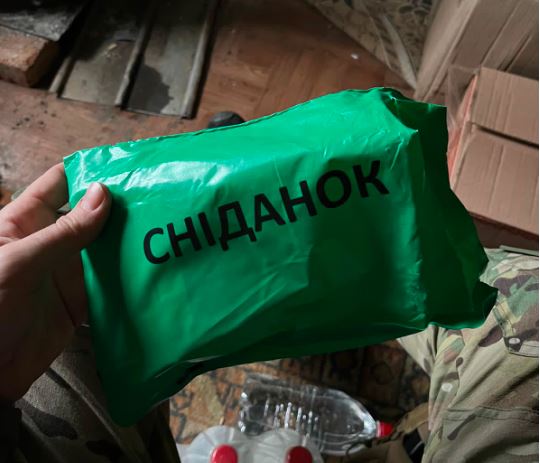
“There are guys I know who have gone several days on the frontline without eating. I don’t want to see soldiers starting to die from scurvy before the high command starts getting things moving,” he explained.
Bohdan Volynskyi, a Ukrainian military chef who gained fame on TikTok by posting videos of himself cooking on the front, confirms the soldiers’ difficulty in getting food on the front lines.
“It’s almost impossible to cook on the frontline,” says the 47-year-old. “So we eat dry rations. But we also avoid eating too much to avoid having to go to the bathroom too often. Every time you go, you risk getting shot.”
Another issue that can arise is the long missions that can last up to a week.
“The most important thing on such missions is to have a water supply and a small amount of food,” explains Bohdan. “It’s better to have more weapons and ammunition than food.”
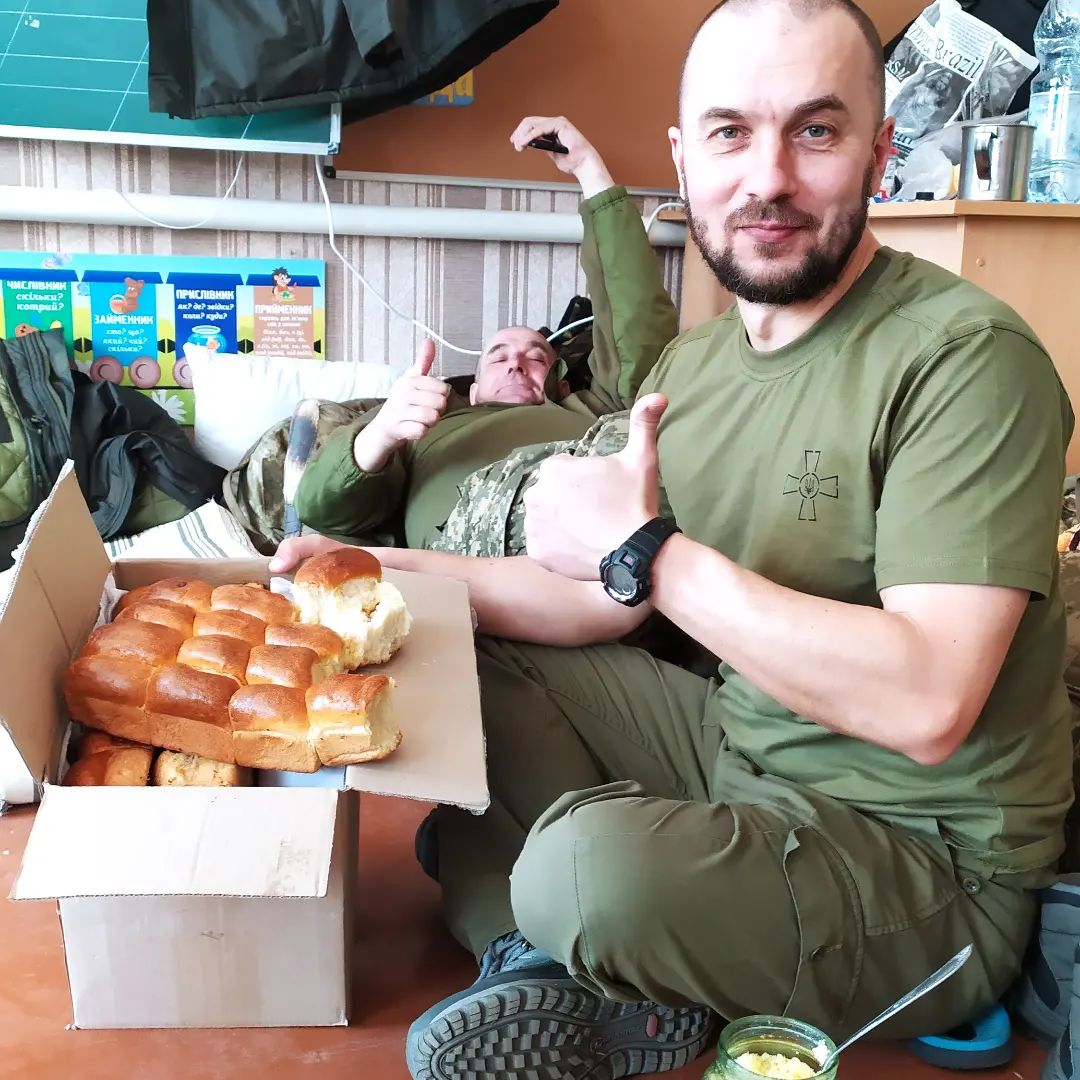
Sugar and energy drinks
While supply issues can vary from one front to another, the Ukrainian army, on the other hand, must confront another scourge: sugar and energy drinks.
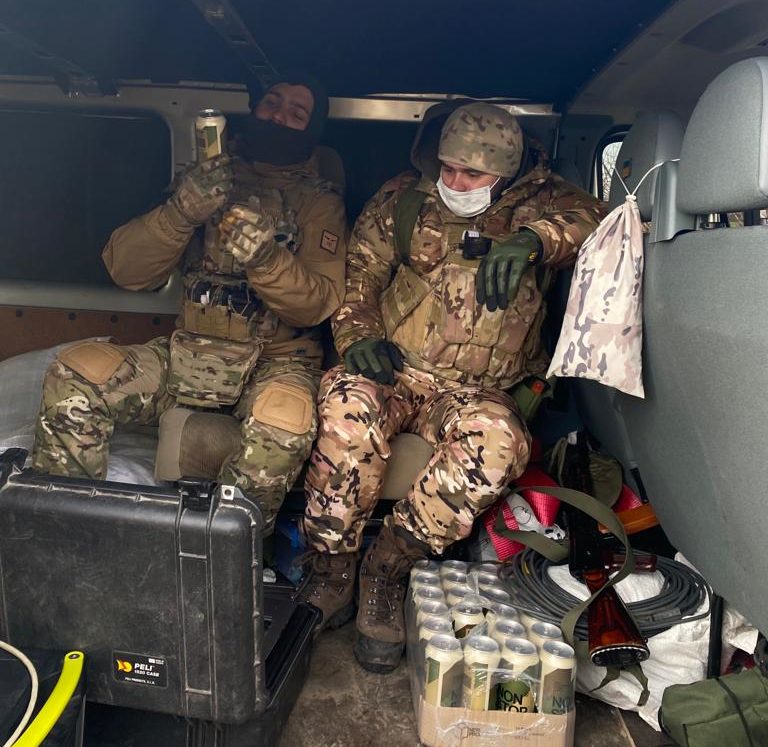
While Bohdan is aware of the scourge of energy drinks, he himself claims that in his unit, they’ve imposed the rule not to drink them and instead replaced them with tea and Compote (a Ukrainian fruit-based drink).
In the realm of energy drink brands, we find Red Bull, which remains quite prominent within the military. However, it has been surpassed by Non-Stop, a Ukrainian brand.
With special editions featuring the colors of the Ukrainian army, Non-Stop’ has evolved into a sponsor of victory. Its more attractive price compared to Red Bull has also captivated a larger number of Ukrainian soldiers.
“We consume a lot of them,” Dima says. “I try to avoid them as much as possible. Instead, I drink a lot of coffee. I know it’s far from perfect. But sometimes, when we’re so exhausted, it’s the only thing that keeps us going,” he admits.
Related:
- Russian drones, jamming stations stymie Ukrainian advance near Robotyne
- Effectiveness of Russian soldiers grows, Ukrainian company commander says
- Ukrainian army food procurement scandal prompts resignation, transparency drive
The post In a Ukrainian soldier’s mess tin: balancing abundance and malnutrition on the Ukrainian frontlines appeared first on Euromaidan Press.


